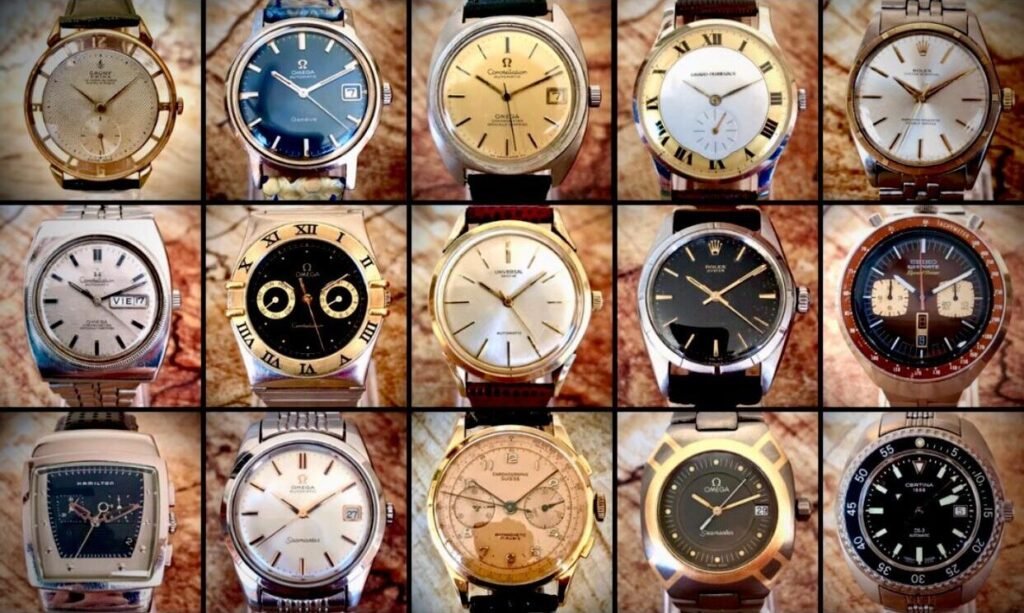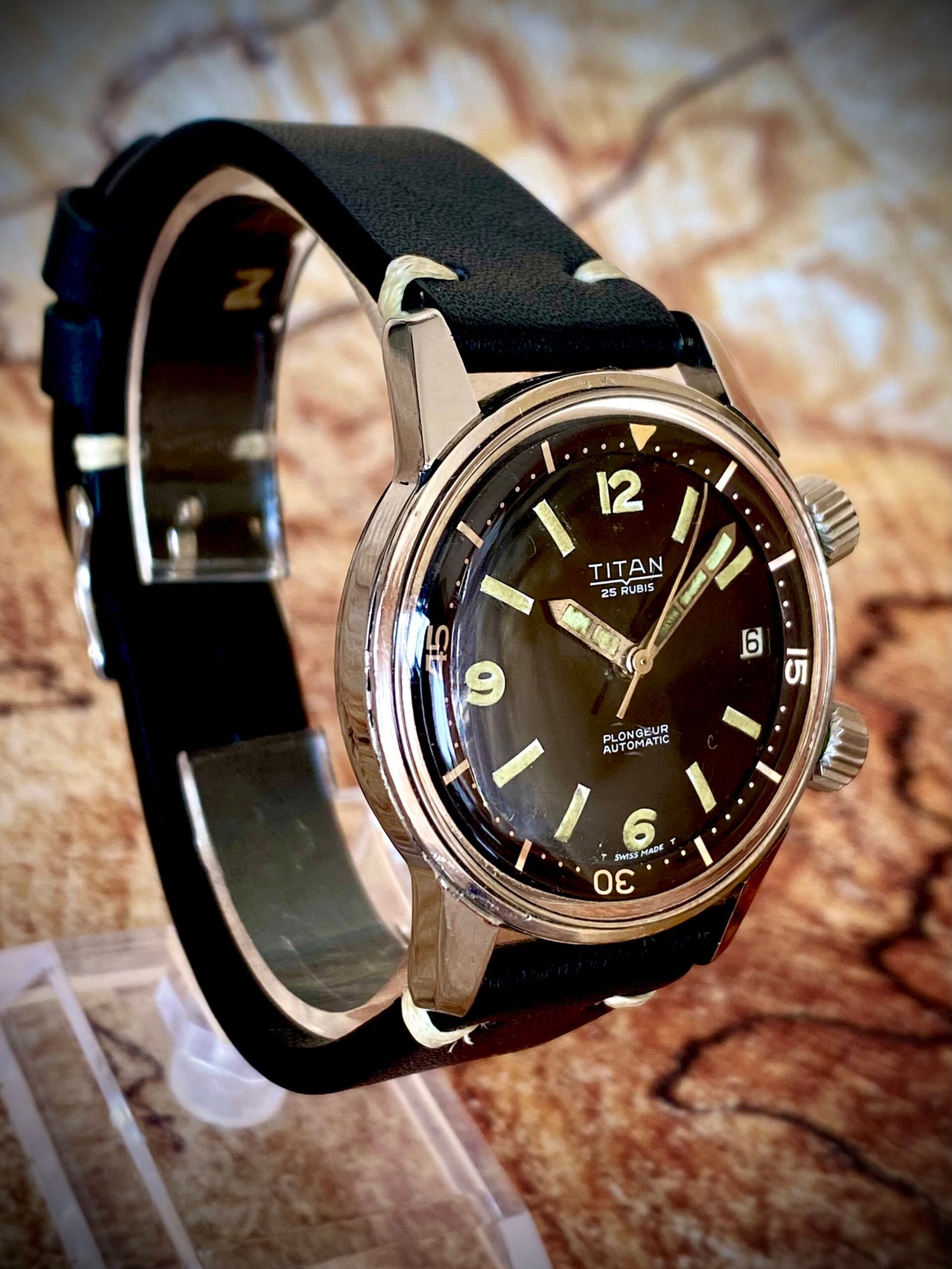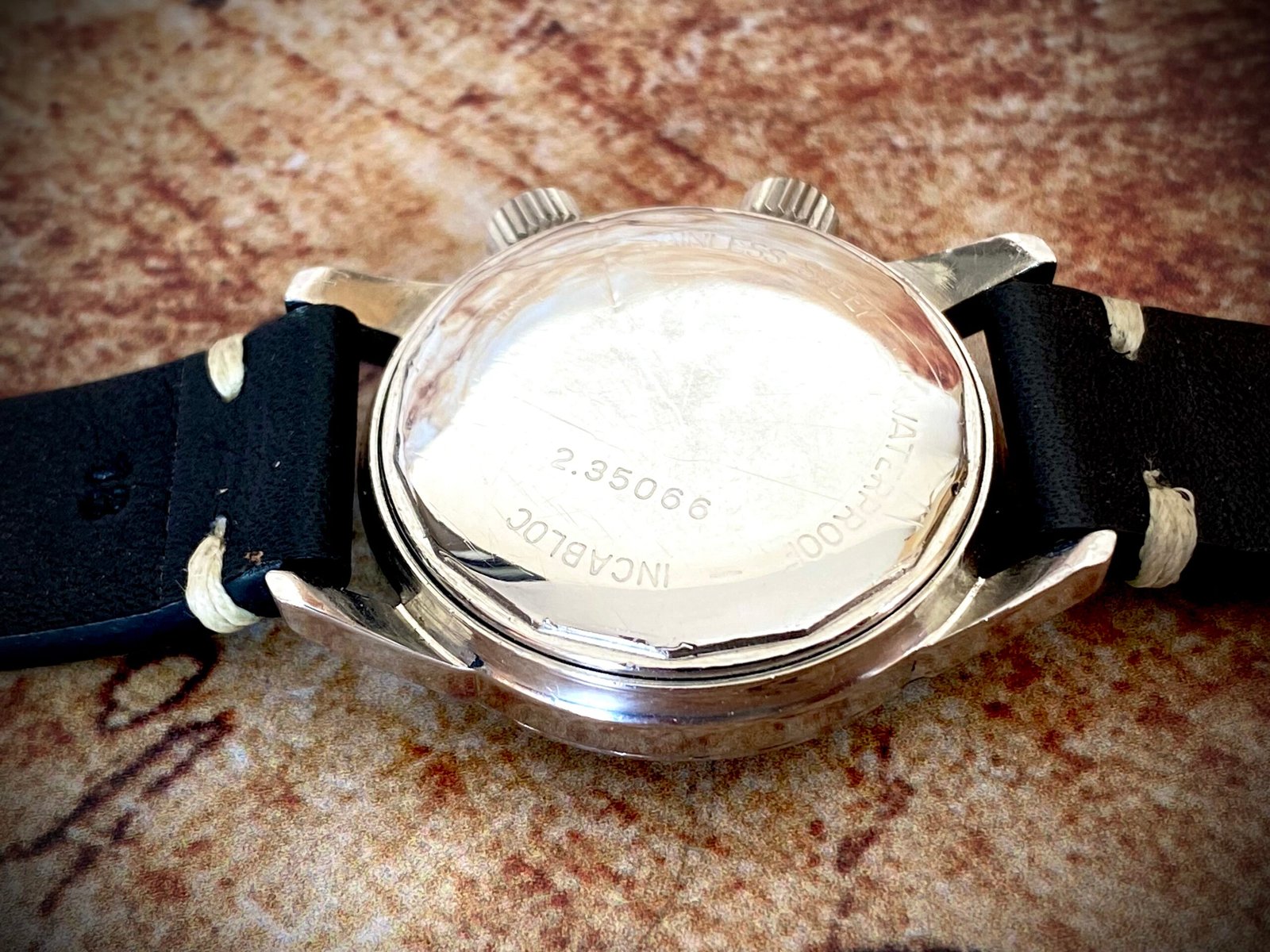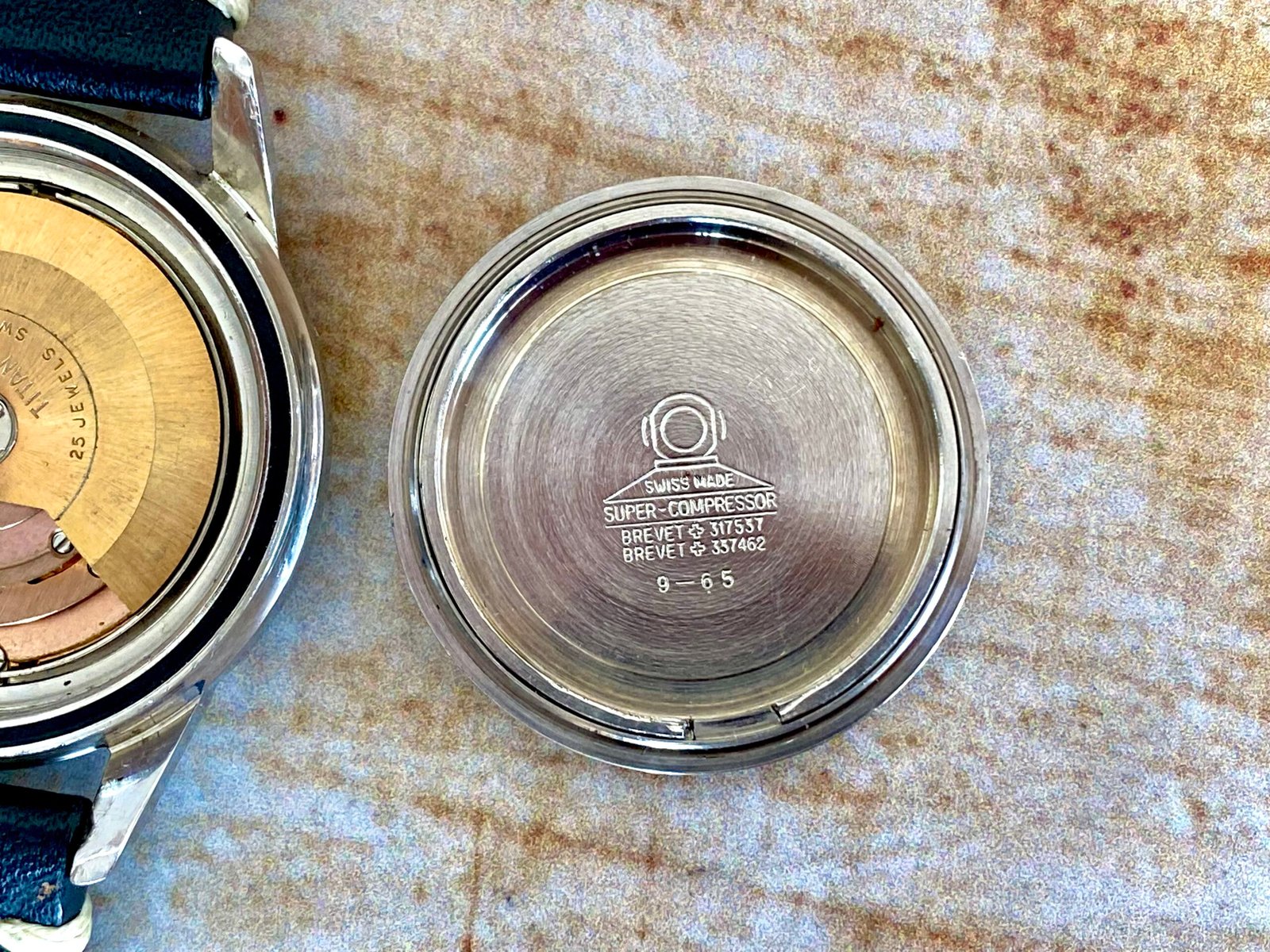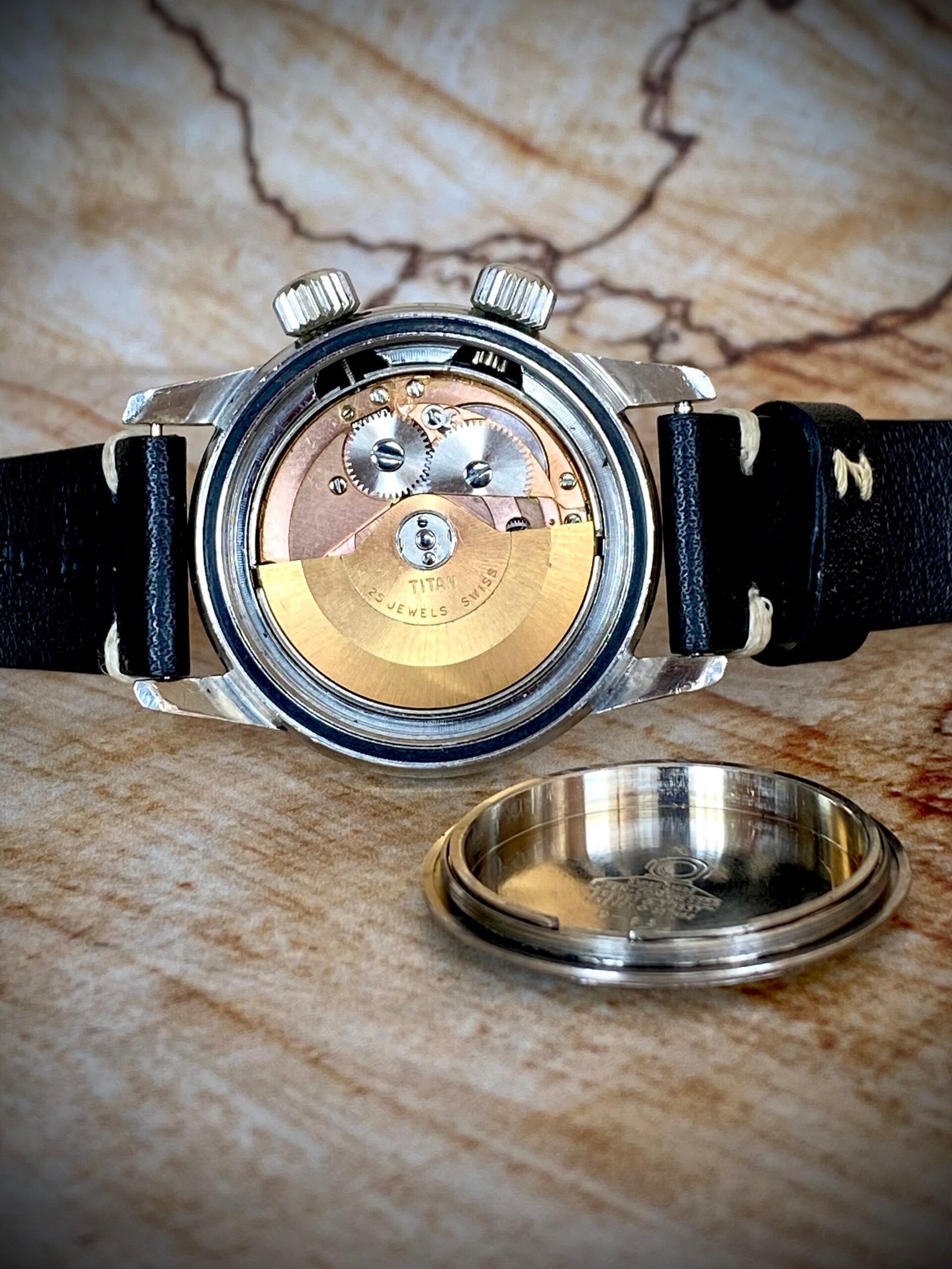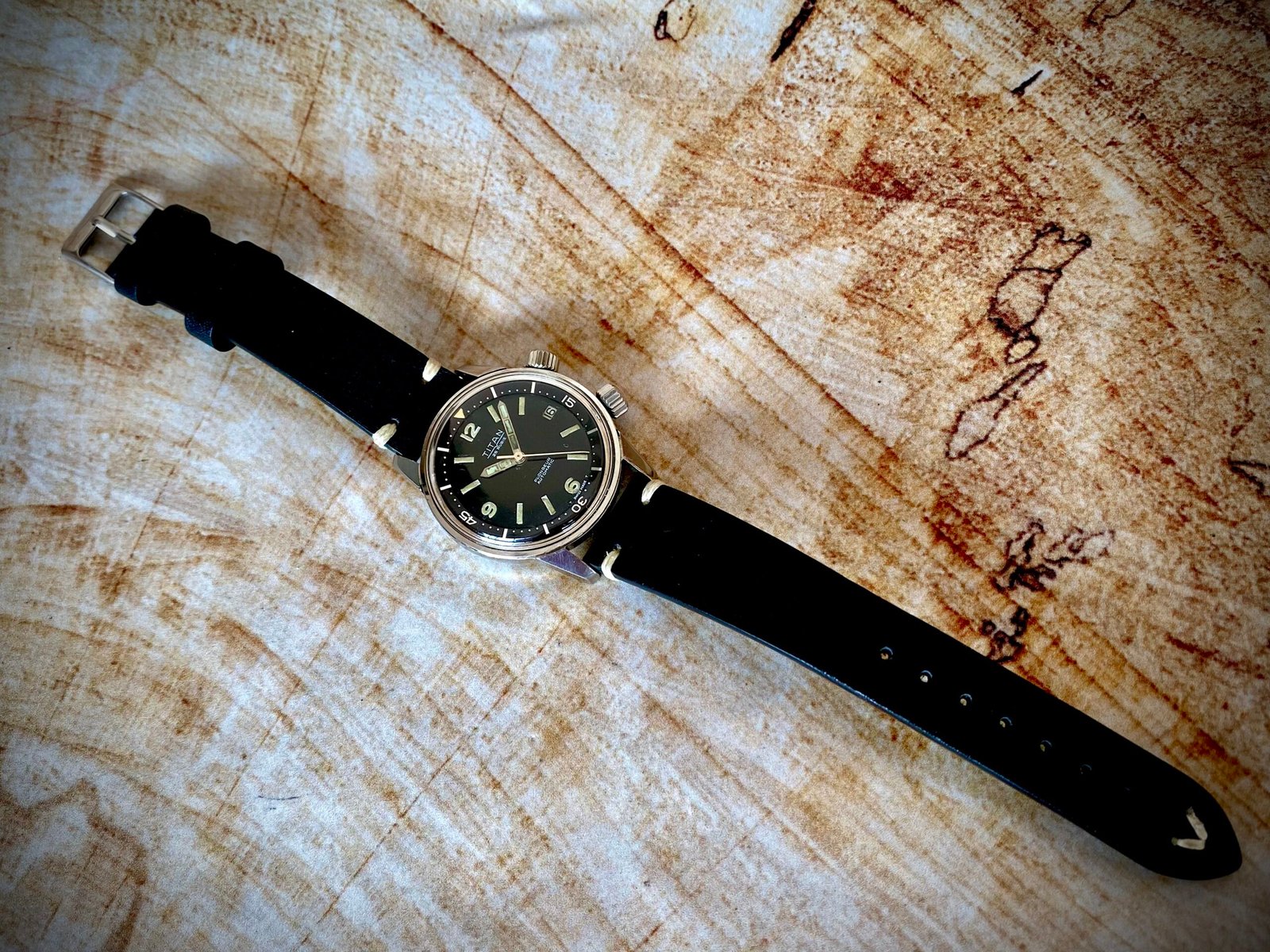- Unique piece
- Free National Shipping
- Delivery in 24/48 hours
- We accept Bizum, Bank Transfer and PayPal
TITAN PLONGEUR SUPER COMPRESSOR, VINTAGE
950,00 €
| Brand | Titan |
|---|---|
| Model | Diver Super Compressor |
| Gender | Man |
| Country of origin | Switzerland |
| Decade | 1960s |
| Serial number | 2.35066 |
| Case code | 9-65 |
| Movement | Automatic |
| Caliber | |
| Crystal | Plexiglass, impeccable |
| Dial | Black, with date display at 3 o'clock. |
| Bezel | Interior, bidirectional rotating |
| Corona | Double crown, for the hour and the inner bezel |
| Case material | Steel |
| Diameter without crown | 36 mm |
| Diameter with crown | 39 mm |
| Lug-to-lug length | 43 mm |
| Thickness | 13 mm |
| Strap width | 18 mm |
| Strap material | Genuine leather |
| Strap color | Black |
| Closure/buckle | Stainless Steel, Clasp Type. |
| Condition of the watch | Very good, with slight signs of aging. |
| Case/Box | Yes, generic. |
| Documentation | Free Certificate of Authenticity available on request |
Titan Plongeur Super Compressor: Submarine Legend of the 60s
Origins and Historical Context
The Titan Plongeur Super Compressor emerged in the mid-1960s, during the golden age of mechanical diving watches. Its design was framed within the popularization of the Super Compressor system, patented by the Swiss company EPSA (Engineering Products Company S.A.) in 1956. This revolutionary mechanism allowed watch cases to automatically increase their water resistance under hydrostatic pressure, preventing leaks during deep dives. The Titan brand, although less documented than giants like Blancpain or Jaeger-LeCoultre (who also used EPSA cases), positioned itself as a manufacturer specialized in underwater tools accessible to recreational and professional divers.
Technical Innovation: The Super Compressor System
The heart of the watch was its double-case EPSA, characterized by:
-
Automatic decompression valve: A metal diaphragm that compressed progressively with ambient pressure, sealing the case back against the crystal hermetically.
-
Internal rotating bezel: Controlled by an additional crown (commonly at 8 o’clock), allowing for dive timing calculations without the risk of accidental adjustments.
-
Stepped resistance: While most diving watches offered fixed water resistance (e.g., 200m), Super Compressors ensured increased safety at depth compared to the surface.
These cases were manufactured in Switzerland and distributed to brands like Titan, which equipped them with high-reliability standard movements.
Design and Distinctive Features
The Titan Plongeur adopted a utilitarian visual language:
-
Stainless steel case of 38-40 mm, with rounded lines and short lugs to enhance ergonomics over wetsuits.
-
High-legibility dials: Black or blue with geometric indices filled with tritium (radium before 1963), and “plongeur” or “skeleton” hands to maximize visibility in low-light conditions.
-
Domed acrylic crystal, impact-resistant but prone to scratches.
-
Double crown: One for the movement (3 o’clock) and another for the internal bezel (8 o’clock), signed with the Titan symbol (commonly a trident or shield).
Movements and Reliability
Titan used tested calibers from Swiss manufacturers:
-
Automatic movements: Such as the AS 1361 (A. Schild) or ETA 2452, with 17-25 jewels and a frequency of 18,000 vibrations per hour.
-
Utility precision: Adjusted in three positions, with tolerances of -20/+40 seconds daily, sufficient for recreational diving.
-
Power reserve: Between 40-45 hours, with bidirectional rotor for efficient winding.
These mechanisms, although not certified as chronometers, demonstrated exceptional durability in saltwater environments.
Legacy and Collector’s Value
The Titan Plongeur Super Compressor declined in the 1980s due to:
-
Quartz competition: Digital watches like the Seiko H558 offered more features at lower prices.
-
ISO 6425 regulations: New diving standards relegated systems like Super Compressors for designs with helium escape valves.
-
EPSA disappearance: The company closed in 1970, making it impossible to repair original cases.
Today, these watches are cult objects due to:
-
Rarity: Titan was a minor brand, with production estimated in a few thousand units.
-
“Tropical” aesthetic: Dials developing unique patinas (brown, green, or gray).
-
Vintage culture: Forums like Watchuseek document their history, and original pieces with intact EPSA cases are treasures for collectors.
Modern Homages and Reissues
Brands like Long Island Watch or Nivada Grenchen relaunched designs inspired by the Super Compressor, but the original Titan remains a symbol of pragmatic underwater watchmaking, where functionality prevailed over luxury. Its history reflects an era of technical experimentation that democratized safe diving for generations of adventurers.
TEMPPUS. All rights reserved.
Additional information
Fully serviced watch. Guaranteed for daily use.
950,00 €
- Unique piece
- Free National Shipping
- Delivery in 24/48 hours
- We accept Bizum, Bank Transfer and PayPal
Related Watches
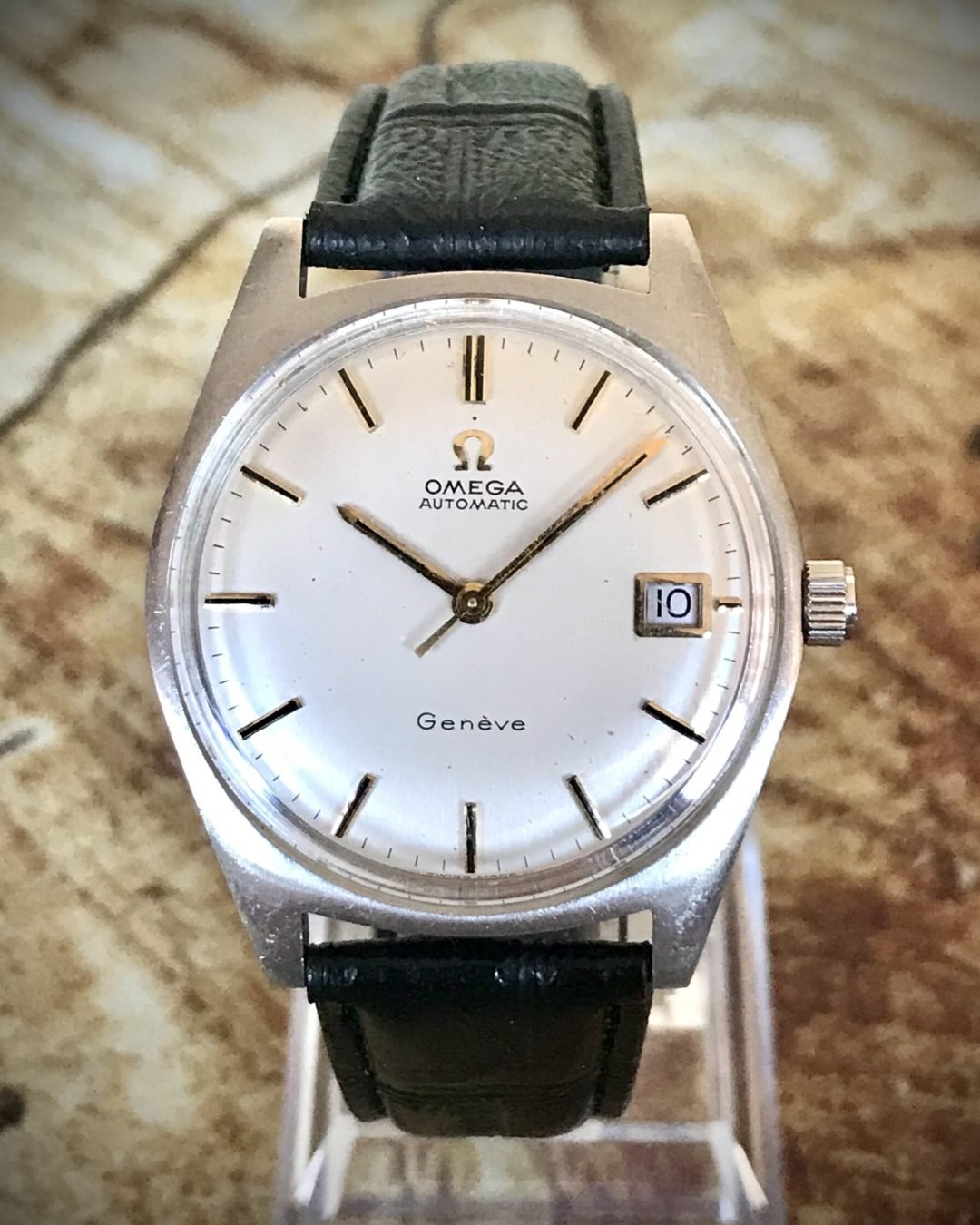
SOLD
OMEGA GENEVE AUTOMATIC, YEAR 1969, CALIBER 565
INFORMACIÓN
| Brand | Omega |
|---|---|
| Model | Geneva |
| Gender | Man |
| Country of origin | Switzerland |
| Decade | 1960s |
| Year of manufacture | 1969 |
| Serial number | 31430427 |
| Case code | 166.041 |
| Movement | Automatic |
| Caliber | Omega 565 |
| Crystal | Plexiglass, impeccable |
| Dial | Silver with date indicator at 3 o'clock. |
| Corona | Steel, original signed OMEGA. |
| Case material | Stainless steel |
| Diameter without crown | 34 mm |
| Diameter with crown | 36 mm |
| Lug-to-lug length | 40 mm |
| Thickness | 10 mm |
| Strap width | 18 mm |
| Strap color | Black |
| Closure/buckle | Pin-type, with Omega symbol. |
| Condition of the watch | Very good, with slight signs of aging. |
| Case/Box | Yes, generic. |
| Documentation | Free Certificate of Authenticity available on request |
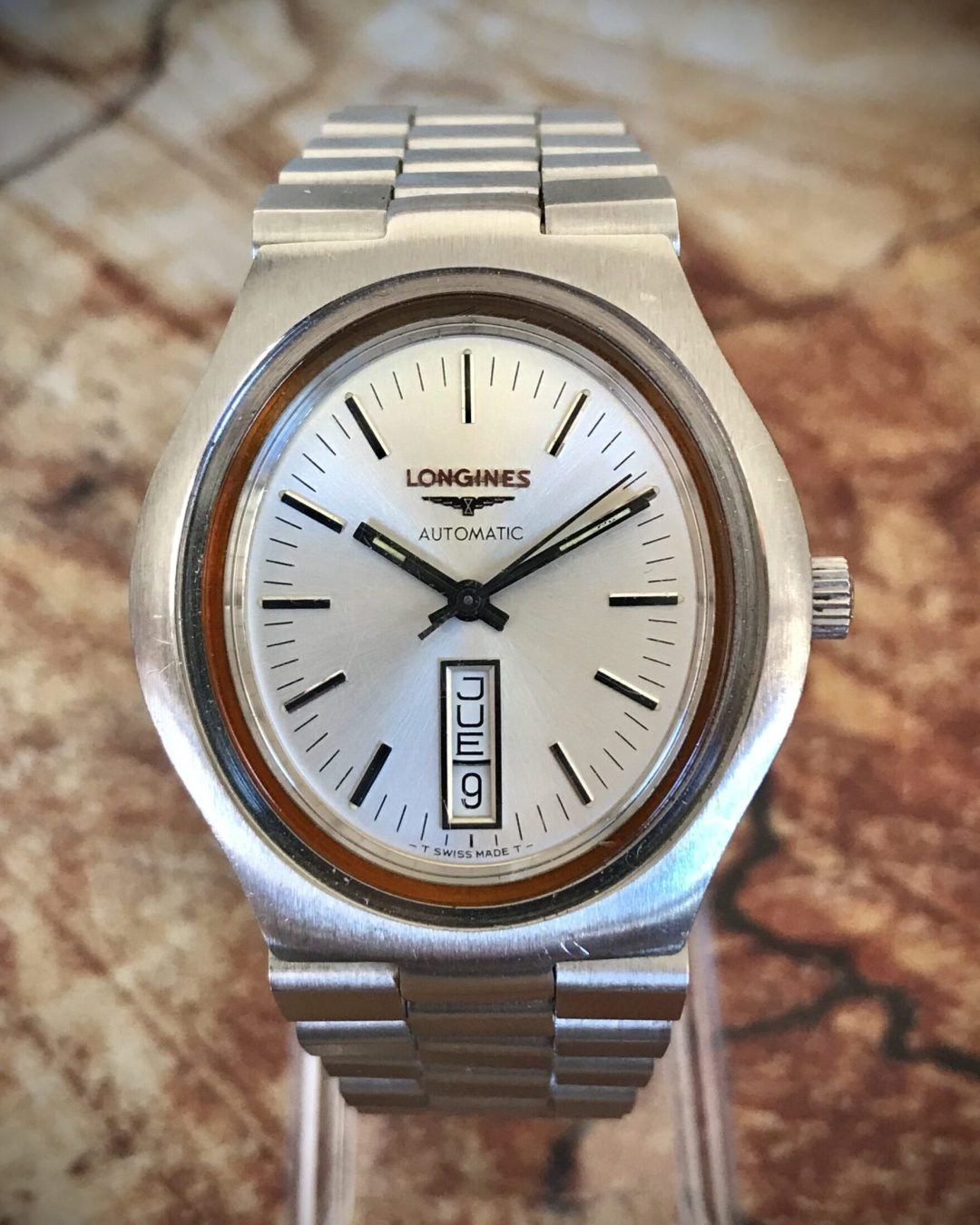
SOLD
LONGINES AUTOMATIC, VINTAGE 70s, STEEL
INFORMACIÓN
| Brand | Longines |
|---|---|
| Model | Oval Automático |
| Gender | Man |
| Country of origin | Switzerland |
| Decade | 1970s |
| Serial number | 92518410 |
| Case code | 2357 1 636 |
| Movement | Automatic |
| Caliber | L-636.1 |
| Crystal | Original Plexiglass, flawless |
| Dial | Silver with calendar at 6 |
| Corona | Steel, original signed LONGINES. |
| Case material | Stainless steel |
| Diameter without crown | 35.5 mm |
| Diameter with crown | 37,2 mm |
| Lug-to-lug length | 42,5 mm |
| Thickness | 11 mm |
| Strap width | 22 mm |
| Strap material | Stainless steel |
| Strap color | Steel |
| Closure/buckle | Fold-over clasp with safety, signed LONGINES |
| Condition of the watch | Excellent, like new! |
| Case/Box | Yes, generic. |
| Documentation | Free Certificate of Authenticity available on request |
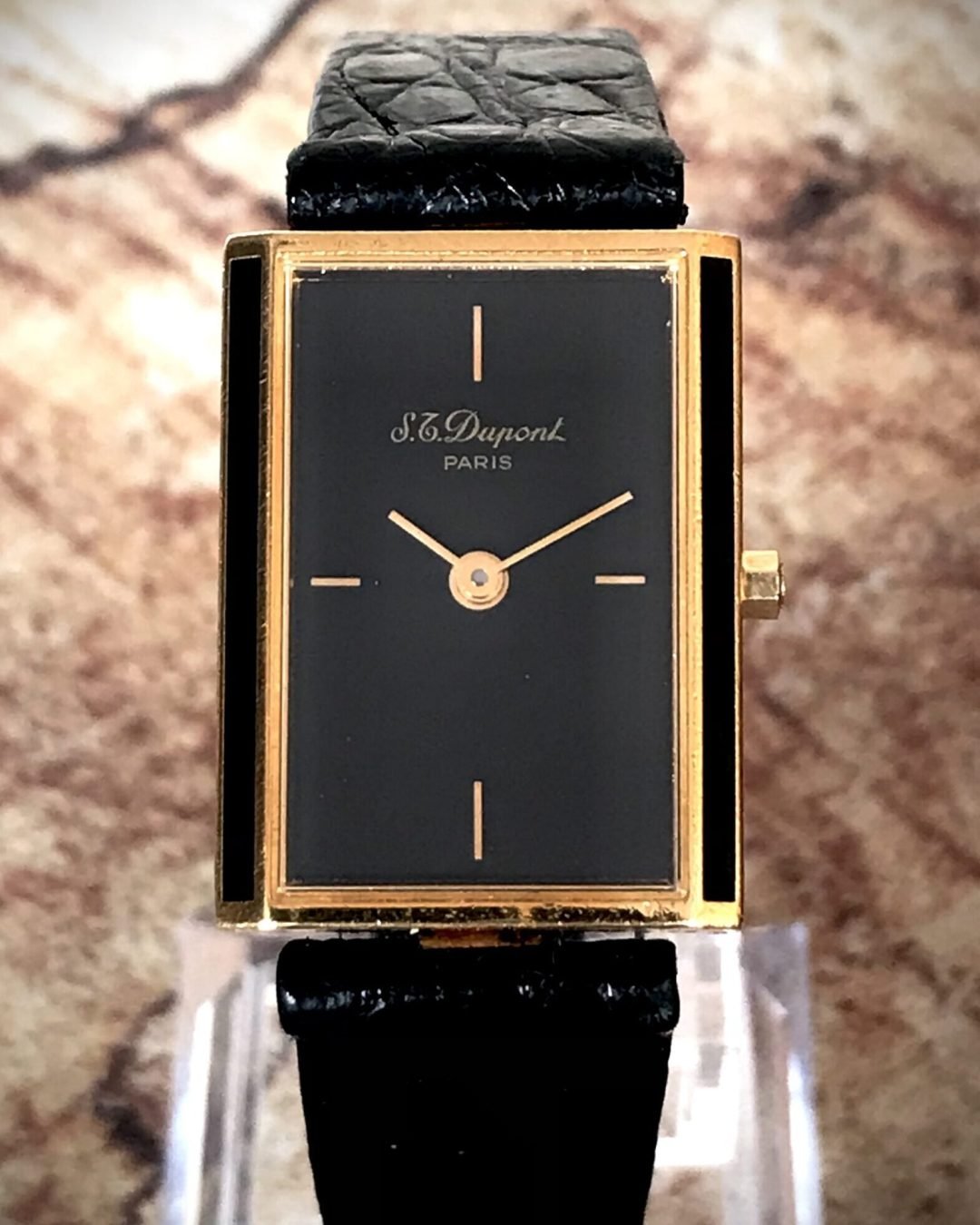
SOLD
ST DUPONT, PARIS (100% ORIGINAL CONDITION)
INFORMACIÓN
| Brand | S. T. Dupont |
|---|---|
| Model | Chinese Laquer |
| Gender | Man |
| Decade | 1990s |
| Year of manufacture | 1990 |
| Serial number | 81JAF69 |
| Movement | Quartz |
| Crystal | Mineral, impecable |
| Dial | Black, impeccable |
| Bezel | Black and 20-micron gold plated |
| Corona | Original, signed Dupont. |
| Case material | Gold-plated steel, 20 microns. |
| Diameter without crown | 21 mm |
| Diameter with crown | 23 mm |
| Lug-to-lug length | 35 mm |
| Thickness | 5 mm |
| Strap width | 16 mm |
| Strap material | Genuine leather, original signed S.T. Dupont. |
| Strap color | Black |
| Closure/buckle | Original S.T. Dupont, 20 microns gold-plated and lacquered. |
| Condition of the watch | Excellent, like new! |
| Case/Box | Yes, generic. |
| Documentation | Free Certificate of Authenticity available on request |
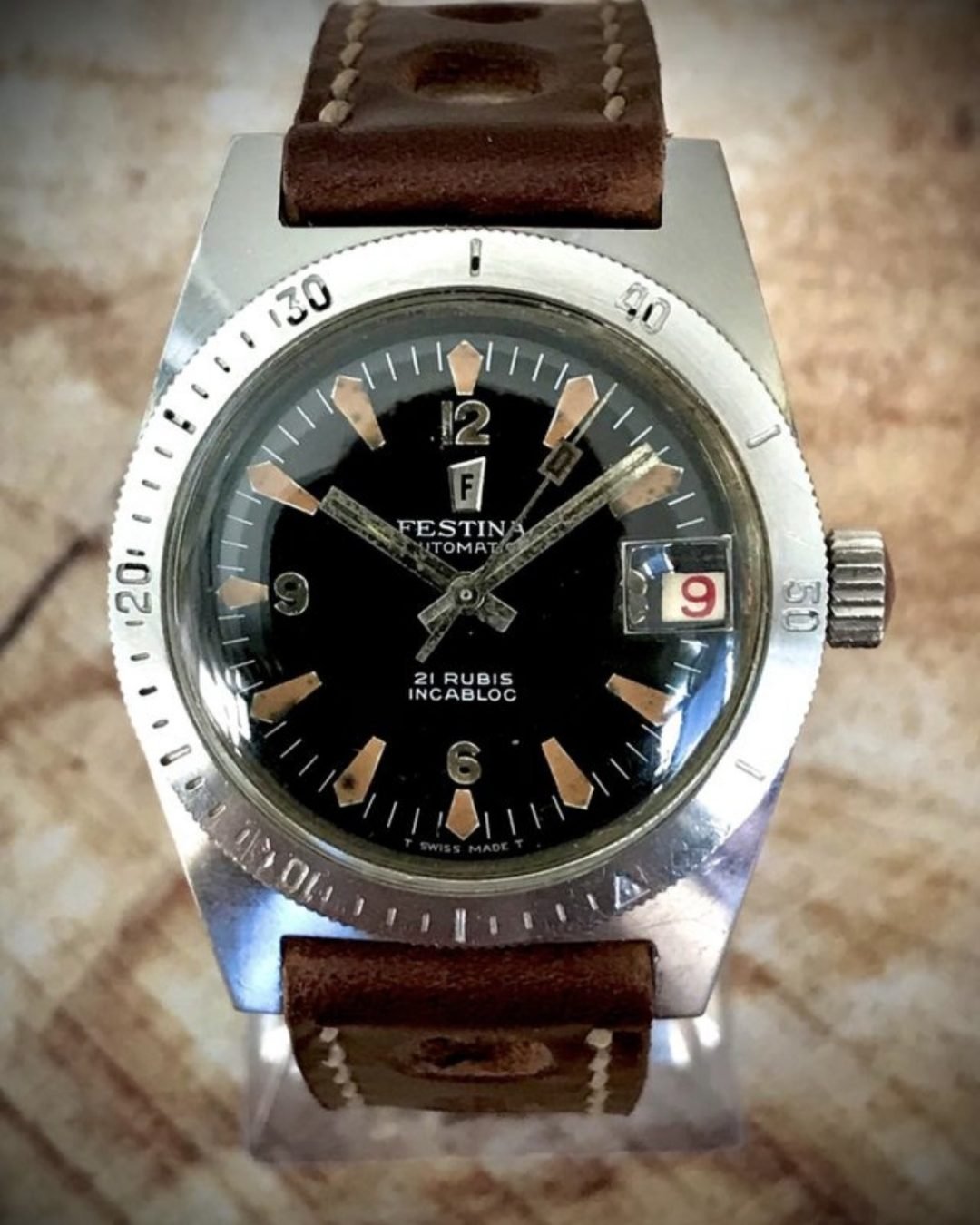
AUTOMATIC FESTINA, VINTAGE FELSA 4007N
790,00 €
INFORMACIÓN
| Brand | Festina |
|---|---|
| Model | Vintage Felsa |
| Gender | Man |
| Decade | 1960s |
| Movement | Automatic |
| Caliber | Felsa 4007N |
| Crystal | Original Plexiglass, flawless |
| Dial | Black, with a date stamp at 3. |
| Bezel | Steel, bidirectional rotating |
| Corona | Original, signed Festina |
| Case material | Steel |
| Diameter without crown | 35.5 mm |
| Diameter with crown | 39 mm |
| Lug-to-lug length | 45 mm |
| Thickness | 12 mm |
| Strap width | 18 mm |
| Strap material | Top quality cowhide leather, handmade Racing type. |
| Strap color | Brown |
| Closure/buckle | Stainless steel |
| Condition of the watch | Very good, with slight signs of aging. |
| Case/Box | Yes, generic. |
| Documentation | Free Certificate of Authenticity available on request |
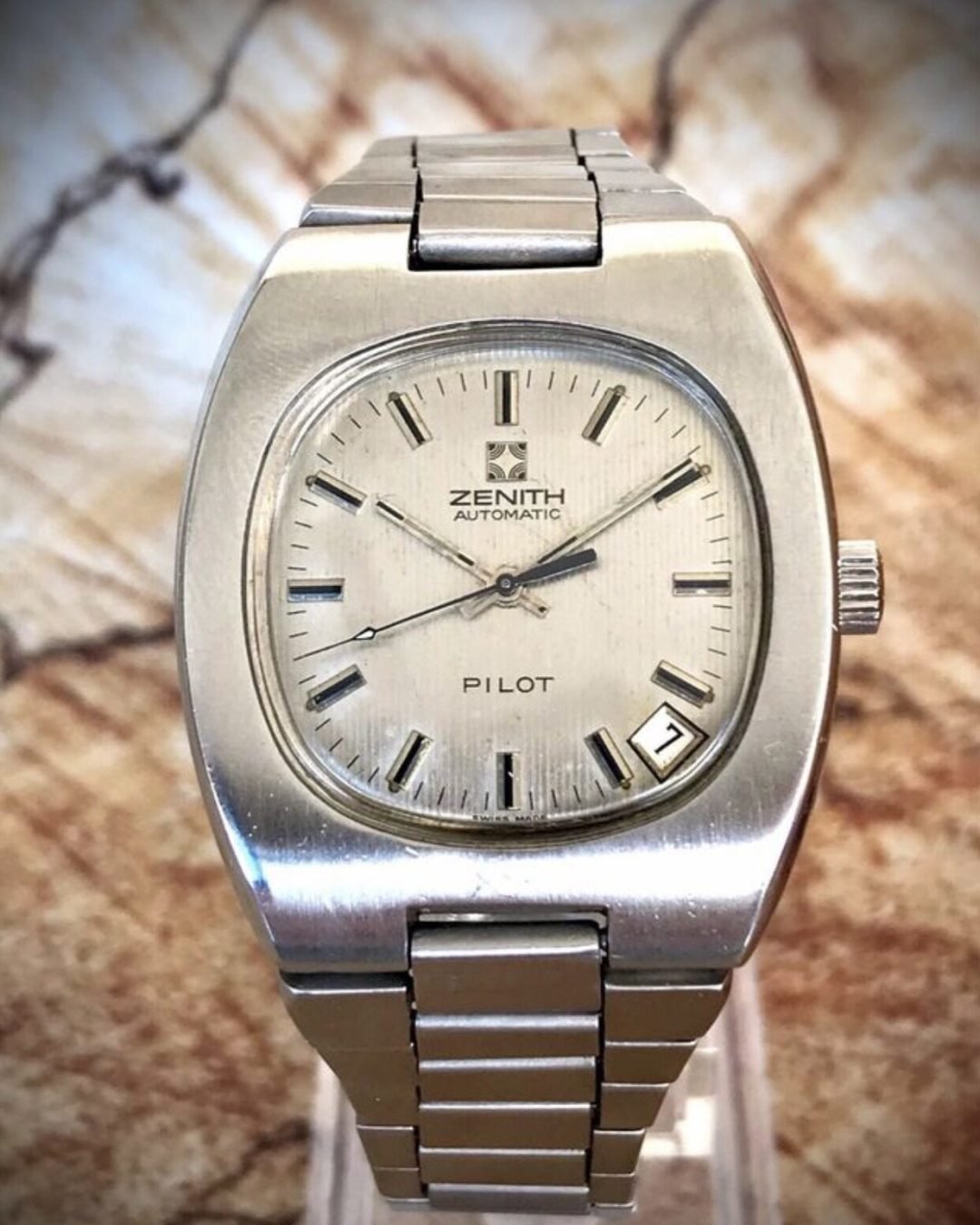
SOLD
ZENITH TV PILOT AUTOMATIC, 70s
INFORMACIÓN
| Brand | Zenith |
|---|---|
| Model | TV Pilot |
| Gender | Man |
| Decade | 1970s |
| Movement | Automatic |
| Caliber | ZENITH 2572 PC-E |
| Crystal | Original PLexiglás |
| Dial | Silver gray with date window at 5 o'clock |
| Corona | Original, signed Zenith. |
| Case material | Steel |
| Diameter without crown | 35 mm |
| Diameter with crown | 37 mm |
| Lug-to-lug length | 40 mm |
| Thickness | 9 mm |
| Strap width | 22 mm |
| Strap material | Stainless steel |
| Strap color | Steel |
| Closure/buckle | Steel, original signed Zenith |
| Condition of the watch | Well, with logical signs of the passage of time. |
| Case/Box | Yes, generic. |
| Documentation | Free Certificate of Authenticity available on request |
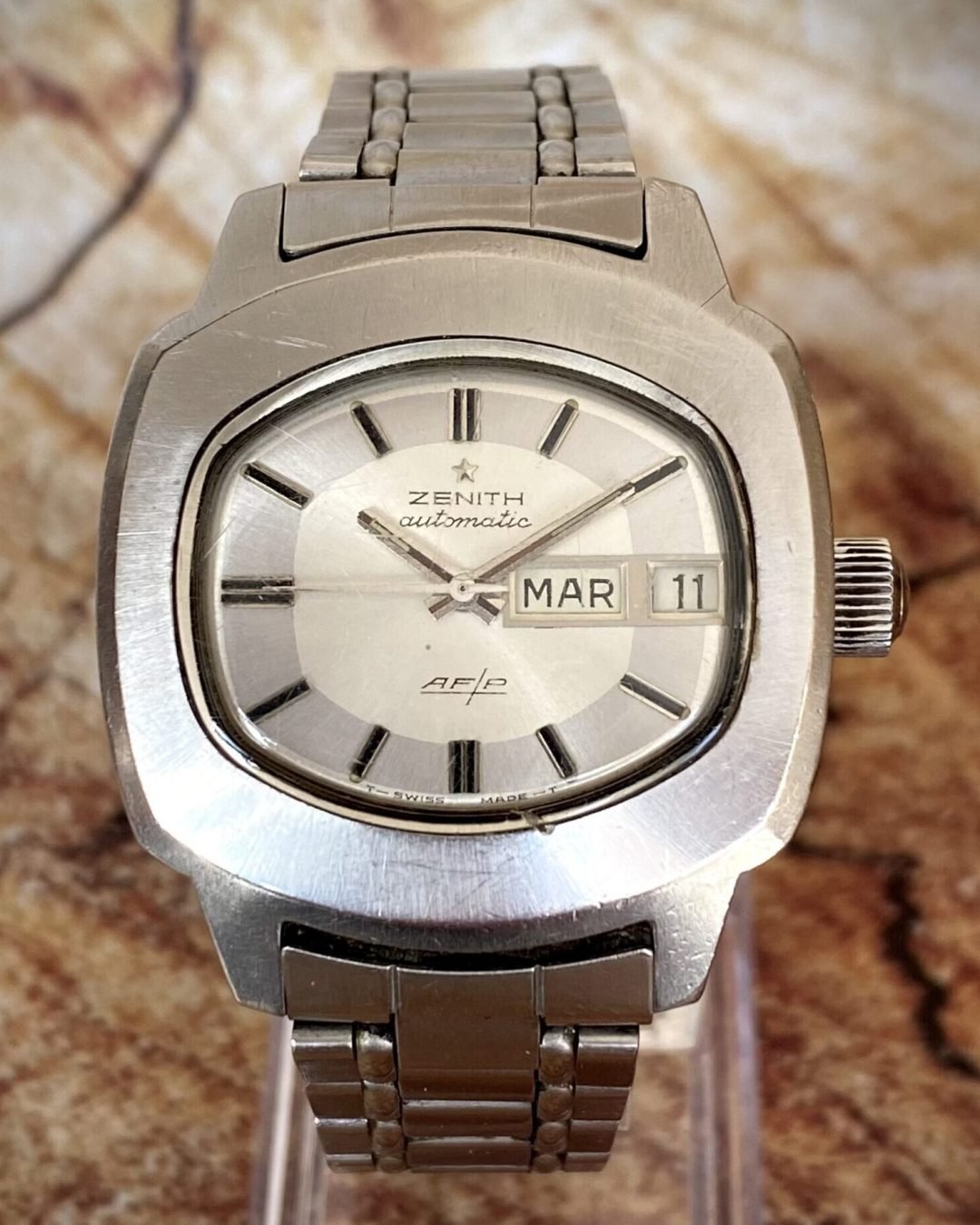
SOLD
ZENITH AF/P, VINTAGE AUTOMATIC
INFORMACIÓN
| Brand | Zenith |
|---|---|
| Model | AF/P |
| Gender | Man |
| Decade | 1970s |
| Serial number | Serial Number |
| Movement | Automatic |
| Caliber | Zenith 405 |
| Crystal | Original PLexiglás |
| Dial | Silver two-tone, with calendar at 3 o'clock |
| Corona | Original, signed Zenith. |
| Case material | Stainless steel |
| Diameter without crown | 35.5 mm |
| Diameter with crown | 37.5 mm |
| Lug-to-lug length | 40 mm |
| Thickness | 9 mm |
| Strap width | 18 mm |
| Strap material | Stainless steel |
| Strap color | Steel |
| Closure/buckle | Zenith signed brooch. |
| Condition of the watch | Well, with logical signs of the passage of time. |
| Case/Box | Yes, generic. |
| Documentation | Free Certificate of Authenticity available on request |
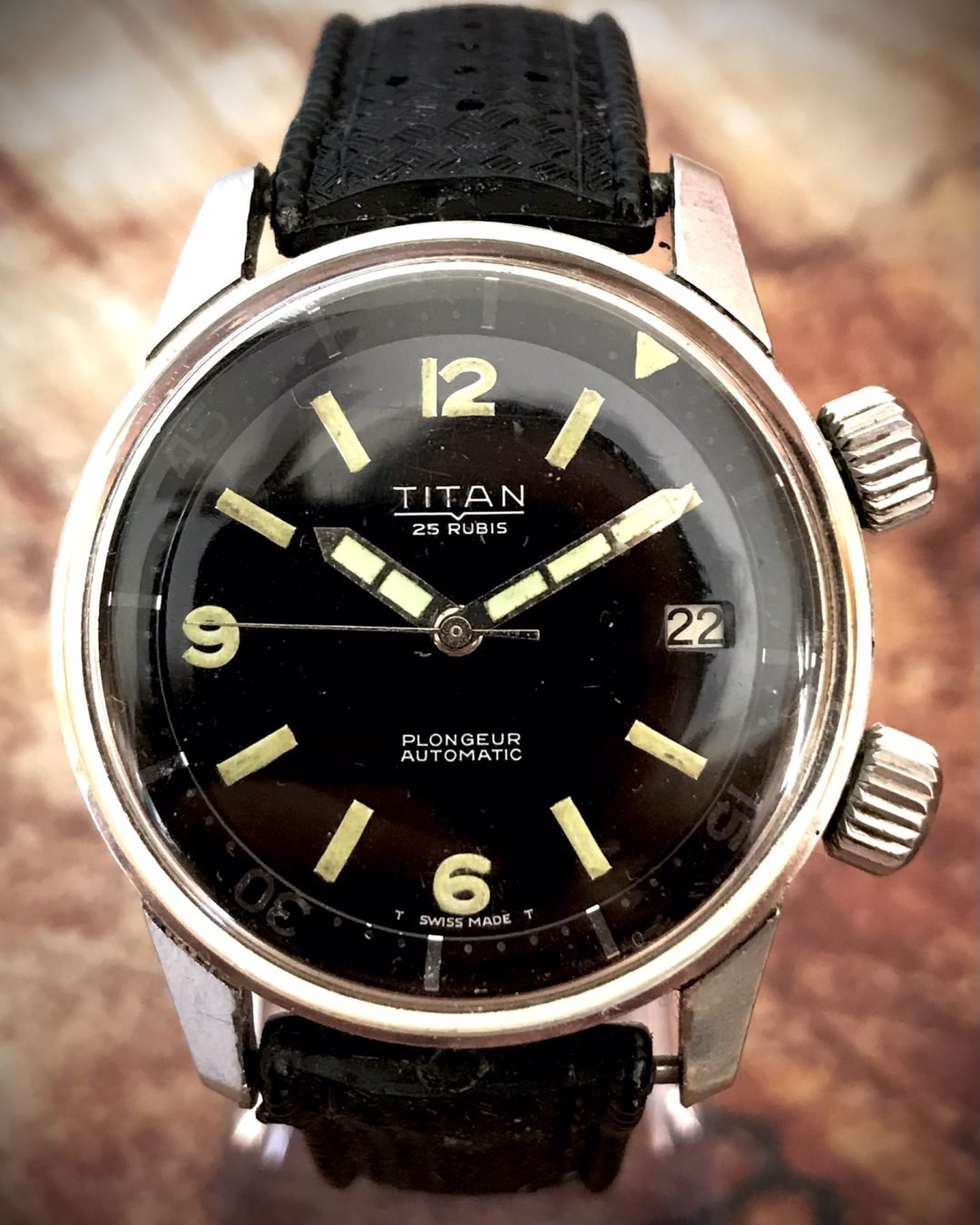
SOLD
TITAN SUPER COMPRESSOR, VINTAGE 60s
INFORMACIÓN
| Brand | Titan |
|---|---|
| Model | Diver Super Compressor |
| Gender | Man |
| Decade | 1960s |
| Movement | Automatic |
| Caliber | |
| Crystal | Original PLexiglás |
| Dial | Black, with a date display at 3 o'clock and hands and indexes with luminous Tritium in perfect condition. |
| Bezel | Interior, bidirectional rotating |
| Corona | Double crown, for the hour and the inner bezel |
| Case material | Stainless steel |
| Diameter without crown | 36 mm |
| Diameter with crown | 39 mm |
| Lug-to-lug length | 43 mm |
| Thickness | 13 mm |
| Strap width | 18 mm |
| Strap material | Two, one original plastic and another Racing leather brand new |
| Strap color | Black and brown, respectively. |
| Closure/buckle | Stainless steel |
| Condition of the watch | Very good, with slight signs of aging. |
| Case/Box | Yes, generic. |
| Documentation | Free Certificate of Authenticity available on request |
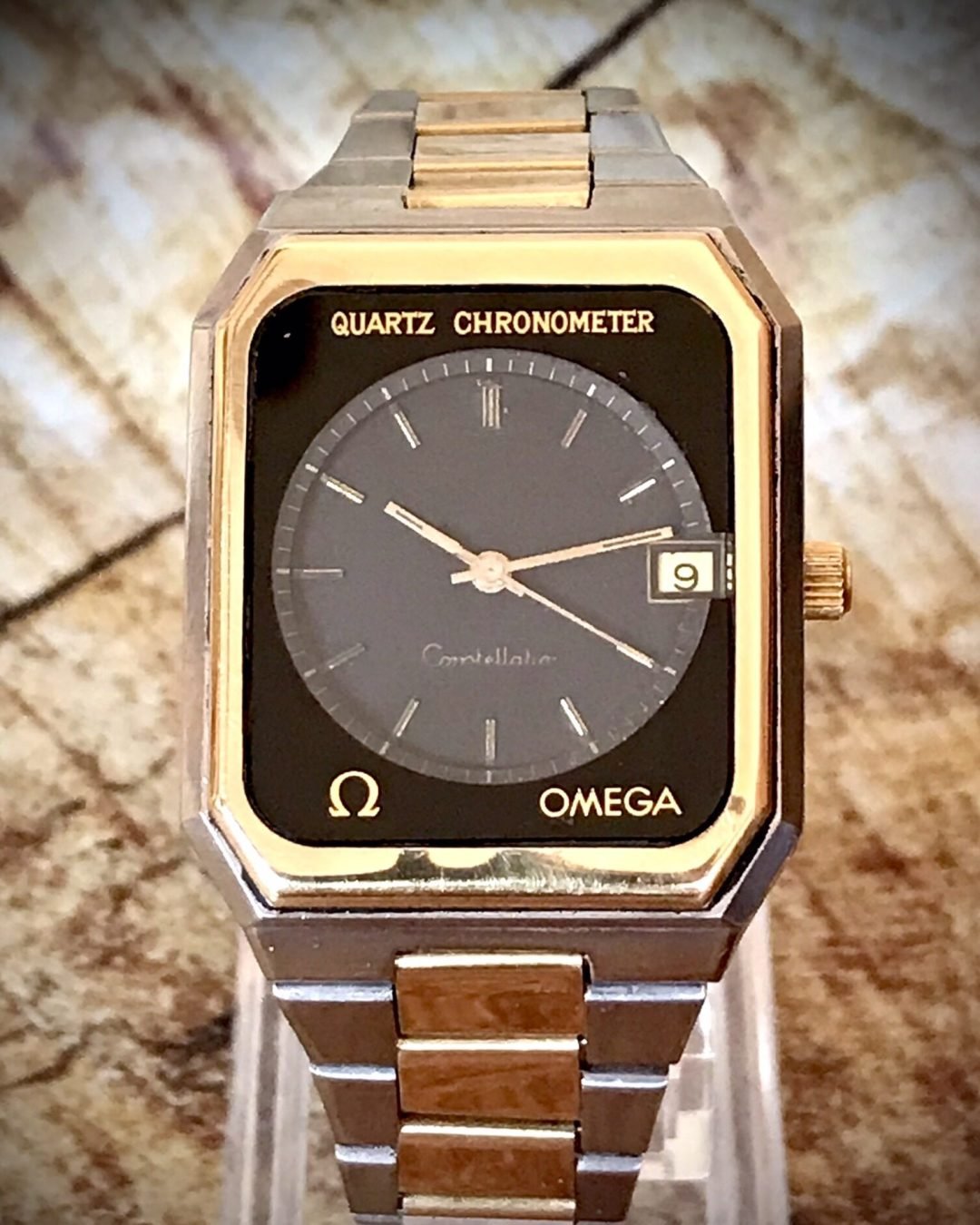
SOLD
OMEGA CONSTELLATION QUARTZ CHRONOMETER 14k GOLD
INFORMACIÓN
| Brand | Omega |
|---|---|
| Model | Constellation Quartz Chronometer |
| Gender | Man |
| Decade | 1980s |
| Movement | Quartz |
| Caliber | Omega 1343 |
| Crystal | Mineral |
| Dial | Black, with a date stamp at 3. |
| Bezel | 14 karat gold |
| Corona | Yours is original Omega. |
| Case material | Steel and 14-karat Gold |
| Diameter without crown | 32 mm |
| Diameter with crown | 34 mm |
| Lug-to-lug length | 41 mm |
| Thickness | 9 mm |
| Strap width | 20 mm |
| Strap material | Steel and 14-karat Gold |
| Strap color | Steel and Gold |
| Closure/buckle | Steel, original Omega |
| Condition of the watch | Well, with logical signs of the passage of time. |
| Case/Box | Yes, generic. |
| Documentation | Free Certificate of Authenticity available on request |
